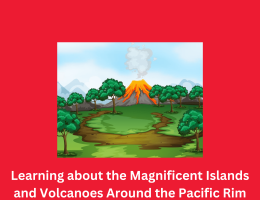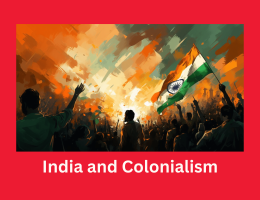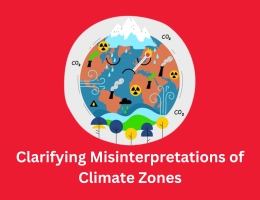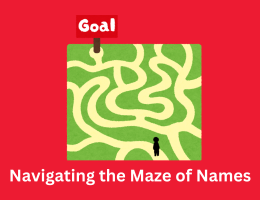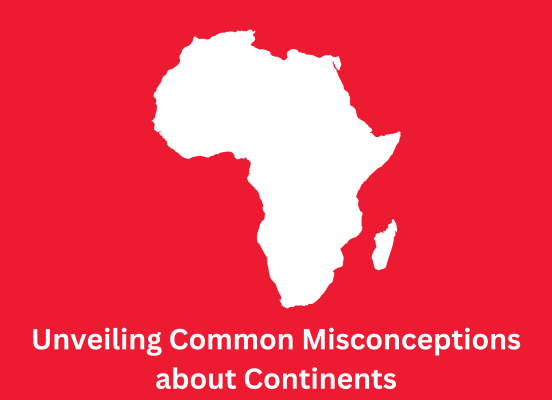
Unveiling Common Misconceptions about Continents
- By admin --
- Thursday, 07 Mar, 2024
Introduction:
The great landmasses that make up the continents and which decide the geography of our planet are often misunderstood. Many human beings have misconceptions approximately those significant regions, irrespective of their prominence on maps and globes. In this research, we have a look at commonplace misunderstandings: the idea that Africa is a separate continent and the conflation of South America and Africa. Our purpose is to improve geographical literacy and decorate a extra precise facts of the world's continents with the aid of clearing up those misconceptions.
Africa: Not a Region, But a Continent One of the maximum enduring myths concerns Africa, the planet's 2nd-largest continent. Many human beings mistakenly trust that Africa is a single u . S . A . Or perhaps a monolithic entity irrespective of its massive length and variety of civilizations. This false impression is the end result of a range of of things, inclusive of insufficient exposure to African geography and a loss of trendy knowledge of the complexity of the continent.
Africa has fifty-four officially recognized independent states, each with unique history, cultures, and geopolitical contexts. Africa is home to a remarkable diversity of ecosystems and landforms, ranging from the pricey Congo Basin rainforests to the barren Saharan deserts. Its population is likewise rather large, speaking over 2,000 languages and belonging to a wide range of ethnic groups.
Nonetheless, the simplifying of Africa's photograph is often facilitated with the useful resource of pervasive preconceptions and media representations. Many Western testimonies overshadow the richness and vibrancy of the continent with awful representations of poverty, sickness, and war. Because of this, people must unconsciously remember Africa as a unmarried, homogenous continent in region of as a numerous mosaic of nations and cultures.
It will take a centered try and promote more know-how and comprehension of Africa's complexity as a manner to correct this misperception. To assist break down misconceptions and inspire a more nuanced point of view, educational packages, cultural exchanges, and media representation that showcases the variety of the continent are encouraged. The mistake of viewing Africa as a unmarried, homogeneous entity may be corrected by means of the use of spotting Africa as a continent with numerous nations and cultures.
Confusion among South America and Africa: South America and Africa are two separate continents with notably differing geographical traits, and that is another frequent source of misunderstanding. Although those who are familiar with geography may additionally discover this misperception perplexing, the reason for it's miles the similarity of their bureaucracy and places on maps.
Africa and South America are both basically triangular in shape, with South America being across the Atlantic Ocean to the west of Africa. Furthermore, the 2 continents' obvious proximity to each other within the western hemisphere on many world maps contributes to the false impression.
Furthermore, confusion between South America and Africa is a result of negative geographic information and a dependence on visual signals. Some people might not have get entry to to dependable maps or gaining knowledge of substances, so they could rely upon simplistic depictions which can be useless at telling aside continents.
It's crucial to pressure how distinct South America and Africa are as independent continents with their own capabilities so that it will dispel this fable. Instead than depending simply on stereotypes or visual alerts, educational curriculum need to location a sturdy emphasis on geographical literacy, allowing students to identify continents based on their bodily capabilities.
Furthermore, encouraging move-cultural information and cultural contacts can aid in growing a greater appreciate for the range of each South America and Africa. We may additionally clear up any misunderstandings and increase a extra particular knowledge of world geography by using emphasizing the particular cultures, history, and topographies of every continent.
Conclusion:
Ignorances about continents, such considering Africa as a nation or conflating South America and Africa, highlight how crucial it is to enhance geographic literacy and cultural sensitivity. We can create a extra informed and cohesive global community via clearing up those misconceptions and promoting a better statistics of the world's continents. Education, move-cultural interactions, and media portrayal can assist us dispel prejudices and growth a complex perspective that honors the variety and complexity of the planet's topography.

